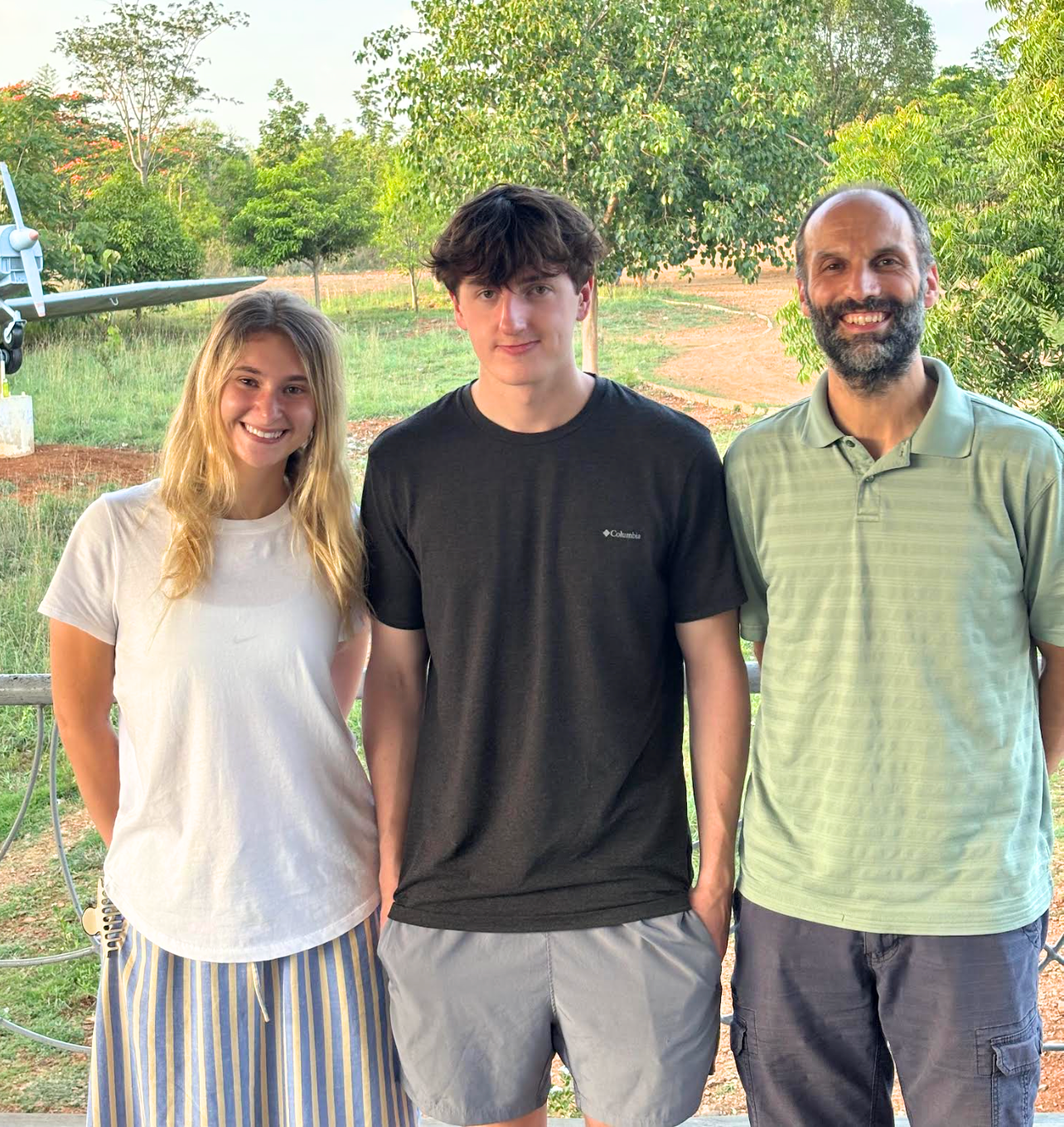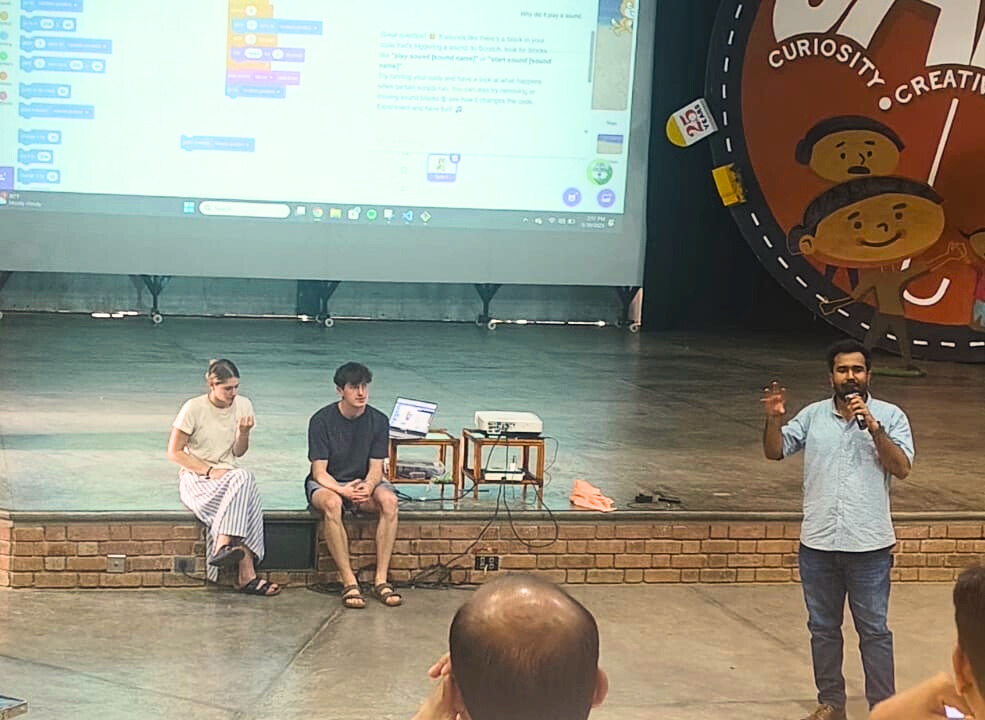Coding a Brighter Future
How Global Social Impact Fellows Are Fueling Karnataka’s Digital Education Movement
In India, where millions of students attend under-resourced government schools, access to quality digital education remains uneven. Recognizing this challenge, the state of Karnataka launched the ambitious i-Code initiative in June 2025, bringing structured, hands-on computer science education to government classrooms across the state.
Karnataka's public education system includes nearly 50,000 schools serving around five million students. Even reaching a fraction of these schools could empower hundreds of thousands of students with foundational coding and computational thinking skills—skills long associated with private education and digital privilege.

At the heart of this effort is iCodePal, an AI-powered Chrome extension developed by students in Lehigh University’s Global Social Impact Fellowship (GSIF) program. The tool delivers real-time, personalized coding support directly to students, helping them debug, learn, and stay engaged, even in large or low-resource classrooms.
The i-Code Program, officially launched in June 2025, aims to provide structured, hands-on computer science education to students in Karnataka’s government schools. Partnering closely with the Agastya International Foundation, the initiative seeks to equip students with vital computational thinking and coding skills that have traditionally been available only in private or independent schools. As the program’s key implementation partner, Agastya International Foundation brings its deep expertise in experiential STEM education and community engagement, helping deliver the i-Code curriculum through its established network of mobile labs, trained educators, and school partnerships across Karnataka.
Enter iCodePal - an AI-powered Chrome extension that offers real-time, personalized coding assistance to students. It was developed by GSIF students Jolie Goldstein ’28 and Benjamin Rainey ’27, with guidance from faculty mentors Michael Spear, associate professor of computer science and engineering, and Zilong Pan, assistant professor of teaching, learning, and technology. Built to work in large or resource-constrained classrooms, iCodePal helps students debug and understand code. The tool promotes deeper learning and boosts classroom engagement.
“For me, this project is incredibly personal,” says Goldstein, who served as the team’s co-lead developer and researcher. “I struggled in school until I discovered computer science. It gave me a new way to see myself, as someone who could solve problems and create meaningful things. iCodePal feels like a full-circle moment: I’m building something that might help others discover their own potential, just like I did.”
That spirit of impact resonated strongly with local collaborators as well.
“iCodePal isn’t just about learning to code. It’s about opening young minds to new ways of thinking and solving problems,” says Shrishail Dhanawade, Chief Experience Officer at Agastya International Foundation. “In classrooms where resources are scarce, it levels the playing field. It gives kids a real shot at becoming creators of technology, not just users. That shift is powerful, and absolutely essential if we want to truly prepare them for the real world ahead.”
“Teaming up with the Lehigh GSIF students has been a real highlight. They brought energy, fresh thinking, and a genuine respect for the realities on the ground. What we created together through iCodePal is thoughtful, practical, and rooted in empathy. It’s a great example of what can happen when global ideas and local insights come together with purpose.” Dhanawade adds.
In preparation for the i-Code Program’s official launch, the GSIF team traveled to India for three weeks of immersive fieldwork from May 17 to June 7, 2025. Their time on the ground was marked by meaningful collaboration and rapid development. Working closely with i-Code program directors and experiential learning officers from Agastya International Foundation, the team ensured that iCodePal—a custom-built coding companion—would meet the real-world needs of classrooms and support students as they take their first steps into coding.

Reflecting on the team’s adaptability and drive, faculty mentor Michael Spear, associate professor of computer science and engineering, shared his perspective.
“The students made incredible progress during their three weeks in India,” he said. “They arrived expecting to work on a different project but came prepared from a semester of rigorous Creative Inquiry training at Lehigh. That preparation gave them the mindset to spot opportunities for impact, adapt quickly, embrace uncertainty, and keep their focus on the end goal.”
“When the chance to support iCode emerged, they recognized it as the perfect fit for their skills. Working alongside our partners at Agastya, and drawing on everything they’ve learned at Lehigh, they created a tool with the potential to reach hundreds of thousands of students in its first year alone, and they accomplished it in just three weeks.” Spear added.
Back at their laptops, the team built out a secure and scalable backend infrastructure using Cloud Firestore, incorporating features like teacher login systems, account management tools, and real-time conversation logging to make classroom integration smooth and reliable. Simultaneously, they designed a clean, user-friendly interface in React, crafted with feedback from both students and teachers to address the unique challenges of diverse learning environments.
In parallel, the team submitted an Institutional Review Board (IRB) application to responsibly evaluate iCodePal’s classroom impact, ensuring ethical data collection with a strong focus on anonymity and privacy. Throughout the visit, they observed classrooms, listened to teachers, and iterated quickly—refining iCodePal daily to make sure it’s ready for pilot testing in Karnataka’s government schools later this year.
"Our tool isn't just about learning how to code," Goldstein emphasizes. "It’s about empowering students to think critically, creatively, and independently, preparing them for future academic and professional success."
As Karnataka’s i-Code initiative rolls out, the GSIF team remains committed to enhancing the learning experience, ensuring every student, regardless of their school's resources, gains the confidence and skills needed to thrive in an increasingly digital world.
